You don’t have to cope in silence with issues like urinary incontinence and sexual dysfunction

When you undergo surgery or radiation to treat your prostate cancer, you may have to contend with urinary and sexual side effects afterward.
Cleveland Clinic is a non-profit academic medical center. Advertising on our site helps support our mission. We do not endorse non-Cleveland Clinic products or services. Policy
“Prostate cancer is one of the most common conditions that a man can get with age,” says urologist Petar Bajic, MD. “And it’s a very common condition that has a very significant impact.”
How severe these side effects are (and how long they’ll last) vary greatly. So, before you undergo prostate cancer treatment, ask your healthcare provider about possible side effects and what can be done to manage them.
“Both radical prostatectomy and radiation treatments can damage the delicate structures surrounding the prostate that control urination and erections,” explains Dr. Bajic.
This can lead to:
But it’s a misconception that there’s nothing to be done about these issues. You don’t have to try to deal with them alone and in silence.
“People often don’t realize that these issues are expected, especially for men who are undergoing prostate cancer treatment — but even for those who aren’t,” Dr. Bajic says. “Nearly all people assigned male at birth will face urinary and sexual issues at some point in their lives, so it’s important to be willing to talk about it with your healthcare providers. We can figure out ways to help.”
Before you undergo any treatment, it’s important to be aware of the possible side effects — and how they can be treated.
“We continue to find better and more innovative prostate cancer treatments that will have less of an impact on quality of life,” Dr. Bajic says, “and we’re also looking at easier, less invasive ways to treat people who do experience these side effects.”
He explains some of the possible side effects of radiation for prostate cancer.
Radiation doesn’t usually cause immediate erection dysfunction issues, but Dr. Bajic says it’s common for these problems to develop months or even years later.
“It’s something that nearly everyone will experience, to some degree, after prostate cancer treatment — at least at the beginning,” he notes. “Most men get either back to their baseline or pretty close to their baseline, but it can take time.”
New treatments are always in development, too. “On the horizon, we’re looking at more high-tech options like the electronic devices that can be controlled from a cell phone,” Dr. Bajic adds.
Erectile dysfunction isn’t the only type of sexual dysfunction that you can experience after radiation for prostate cancer. You may not produce much or any semen when you orgasm.
“About 80% of the fluid that typically comes out in ejaculation is from the prostate gland and seminal vesicles behind the prostate,” Dr. Bajic explains, “so if these structures are removed or affected by radiation, the ejaculate will be affected.”
Radiation can affect your fertility, so if you’re hoping to have kids, be sure to talk to your healthcare provider before your treatment.
Radiation can lead to sex-related incontinence, too, Dr. Bajic says. In fact, up to 70% of men who undergo prostate cancer treatments may experience them:
Both issues are gaining more attention from healthcare providers.
“Historically, providers haven’t done a good job of asking the right questions to understand whether our patients are experiencing them,” Dr. Bajic clarifies, “but there are treatments we can offer for both.”
It’s common for radiation to irritate the bladder and urethra and cause issues like:
“There are a lot of very effective treatments available for these kinds of bladder issues — ones that we use even for people who don't have a history of prostate cancer,” Dr. Bajic says. “There are both medications and various procedures that we can consider.”
Your healthcare provider may prescribe a medication to relax your bladder. If that doesn’t work, they may consider Botox® injections or nerve stimulators (sacral neuromodulation), which can decrease the spasms that cause overactive bladder symptoms.
The most common type of urinary incontinence after radiation for prostate cancer is urge incontinence, which we’ve already touched on. This is when you feel a sudden need to pee and leak before you can make it to the restroom. Or you might not realize that you need to pee and begin to leak.
There’s also stress incontinence, which causes you to leak urine during physical exertion. This type of incontinence is more often a side effect of a prostatectomy than of radiation treatments alone.
“You’re more likely to experience urinary leakage if you’ve had advanced or recurring cancer and need radiation after having surgery to remove the prostate,” Dr. Bajic says. “But there are very effective treatments available to help.
In these cases, options include:
Before you undergo external beam radiation therapy, your provider may use an injectable hydrogel prior to radiation therapy, which pushes the rectum away from the prostate. It can reduce the chances of bowel and rectal-related problems, like:
The side effects of prostate cancer treatment can happen soon afterward or years down the road, and how long they last will vary from person to person. But whenever they occur, the most important thing to know is that they’re treatable.
“The biggest misconception people have is that the side effects of cancer treatment are just something they have to live with,” Dr. Bajic shares. “It’s really important for people to know that all of these issues are treatable. It’s just a matter of having those conversations with your care team.”
While raising the subject of urinary incontinence can be embarrassing, Dr. Bajic says it’s critical to tell your healthcare provider about any lingering problems you’re experiencing.
“There are many men out there who are just trying to live with their incontinence without seeking treatment,” he says. “It’s a significant quality-of-life issue — but many of them can be helped, if only they speak up.”
Learn more about our editorial process.

Family history and genetics may heighten your risk for prostate cancer

Anyone with a prostate can get prostate cancer, but some symptoms could be masked

Check-in with your care team, and focus on low-impact exercises and walking for good gains
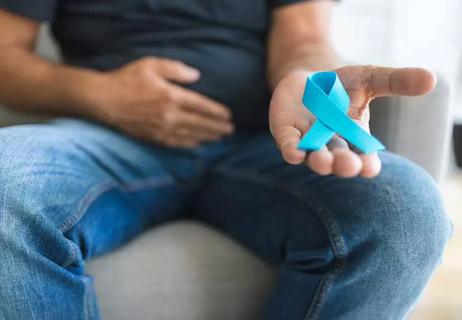
Sex may be different after prostate cancer treatment, but it can still be enjoyable
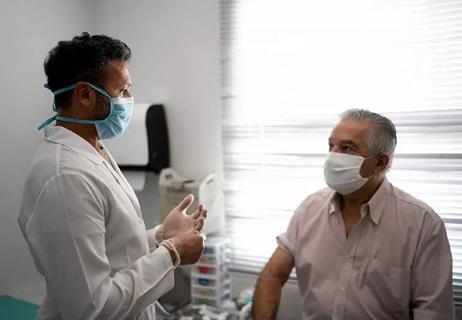
An enlarged prostate, diuretics and bladder irritants can all contribute
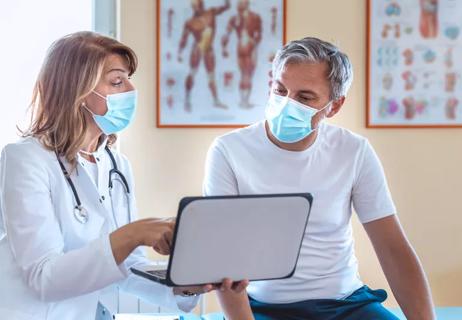
Not following recommended follow-ups could put you at risk
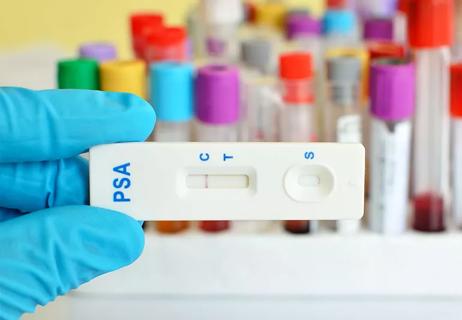
This simple blood test can be key to early detection
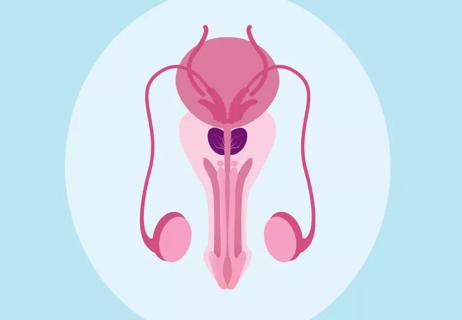
If this common cancer is caught early, the prognosis is good

Your metabolism may torch 1,300 to 2,000 calories daily with no activity

A gentle touch in all the right places may help drain your sinuses